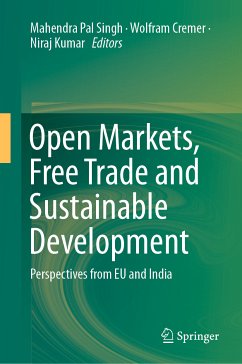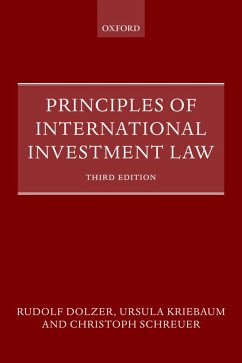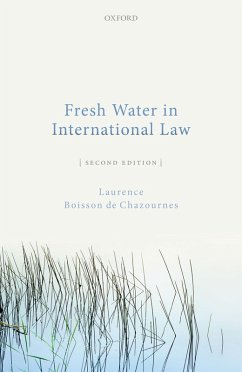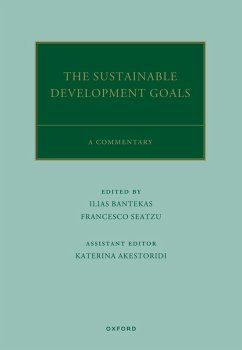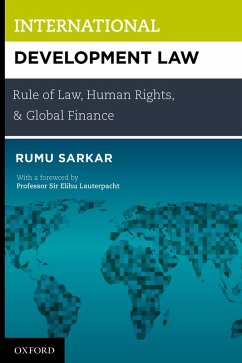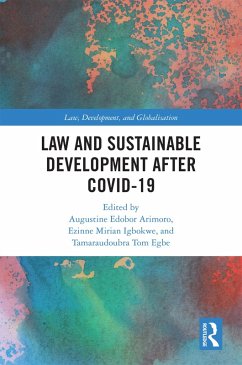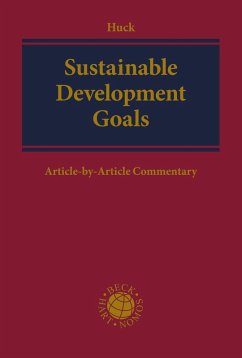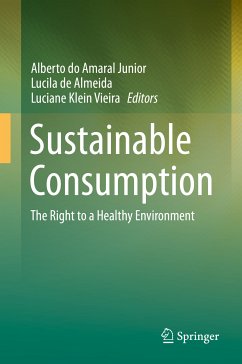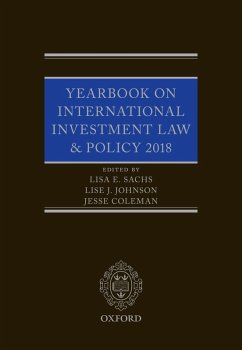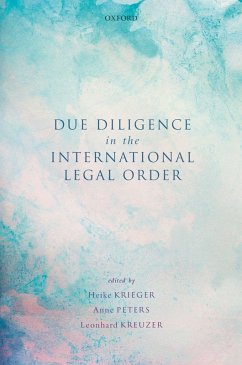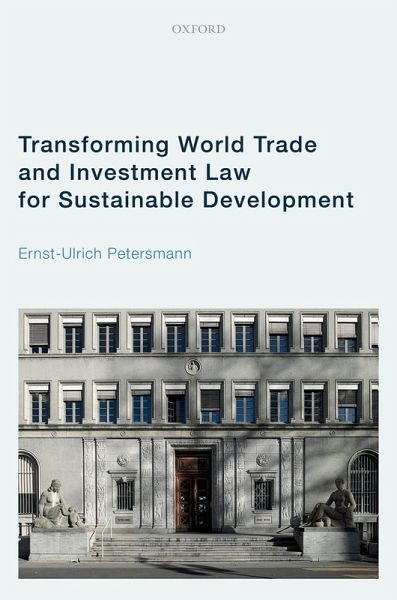
Transforming World Trade and Investment Law for Sustainable Development (eBook, PDF)
Versandkostenfrei!
Sofort per Download lieferbar
46,95 €
inkl. MwSt.
Weitere Ausgaben:

PAYBACK Punkte
23 °P sammeln!
Transforming World Trade and Investment Law for Sustainable Development explains why the 2030 UN Sustainable Development Agenda for "Transforming our World"--aimed at realizing universal human rights and the17 agreed sustainable development goals (SDGs)--requires transforming the UN and WTO legal systems, as well as international investment law and adjudication. UN and WTO law protect regulatory competition between diverse neo-liberal, state-capitalist, European ordo-liberal, and developing countries' conceptions of multilevel trade and investment regulation. However, geopolitical rivalries an...
Transforming World Trade and Investment Law for Sustainable Development explains why the 2030 UN Sustainable Development Agenda for "Transforming our World"--aimed at realizing universal human rights and the17 agreed sustainable development goals (SDGs)--requires transforming the UN and WTO legal systems, as well as international investment law and adjudication. UN and WTO law protect regulatory competition between diverse neo-liberal, state-capitalist, European ordo-liberal, and developing countries' conceptions of multilevel trade and investment regulation. However, geopolitical rivalries and trade wars increasingly undermine transnational rule of law and effective regulation of market failures, governance, and constitutional failures. Protecting the WTO legal and dispute settlement system remains essential for SDGs such as climate change mitigation measures and access to medical supplies and vaccines in global health pandemics. Investment law and adjudication must better reconcile governmental duties to protect human rights and decarbonize economies with the property rights of foreign investors. The constitutional, human rights, and environmental litigation in Europe enhances the legal accountability of democratic governments for protecting sustainable development. However, European economic constitutionalism has been rejected by neoliberalism, China's authoritarian state-capitalism, and many developing countries' governments. The more that regional economic orders (like the China-led Belt and Road networks) reveal heterogeneity and power politics block UN and WTO reforms, the more the US-led neoliberal world order risks disintegrating. UN and WTO law must promote private-public network governance and civil society participation in order to stabilize and de-politicize multilevel governance that protects SDGs and global public goods.
Dieser Download kann aus rechtlichen Gründen nur mit Rechnungsadresse in A, B, BG, CY, CZ, D, DK, EW, E, FIN, F, GR, HR, H, IRL, I, LT, L, LR, M, NL, PL, P, R, S, SLO, SK ausgeliefert werden.




